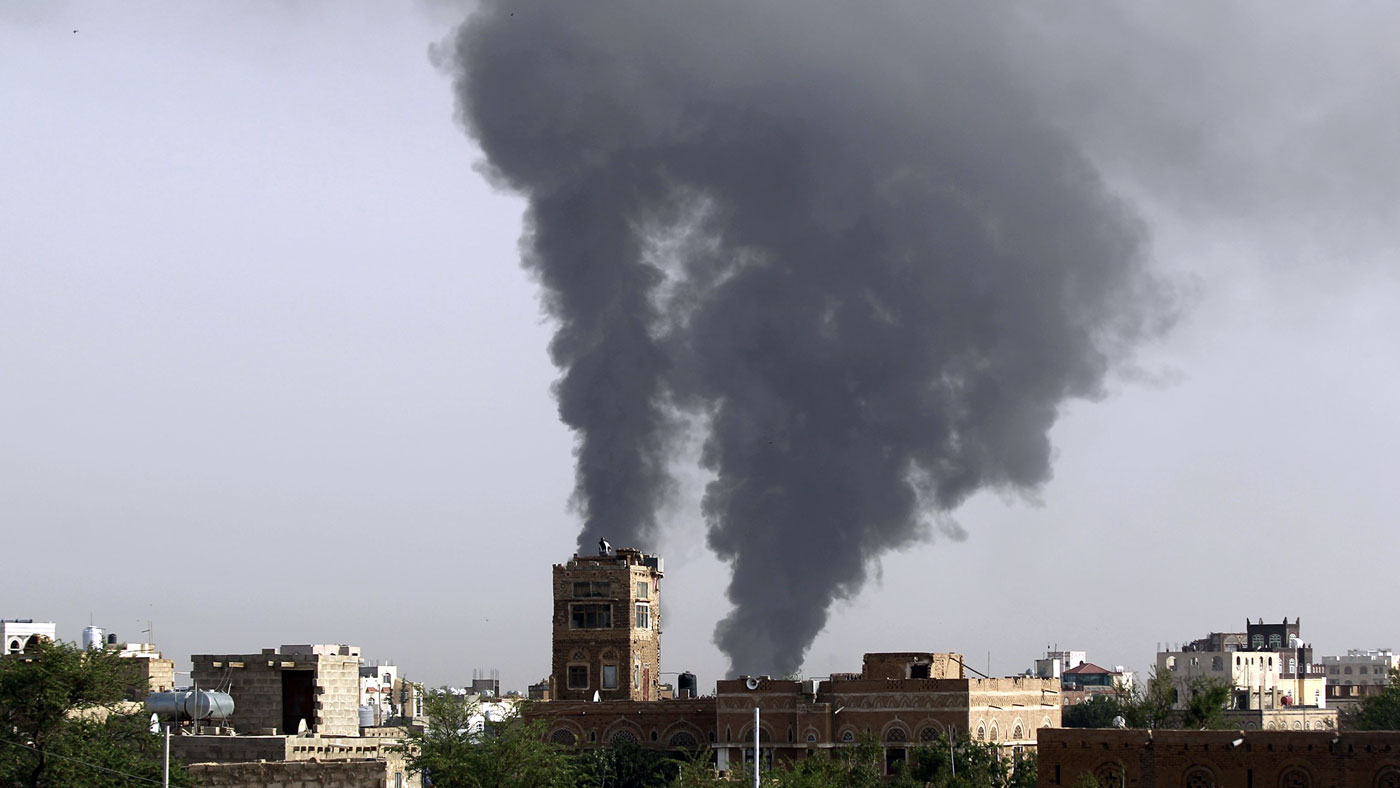Saudi Arabia dropped British-made cluster bombs in Yemen
Michael Fallon tells Commons a 'limited number' of the banned missiles were dropped in air strikes

A free daily email with the biggest news stories of the day – and the best features from TheWeek.com
You are now subscribed
Your newsletter sign-up was successful
British-made cluster bombs have been used by the Saudi-led coalition during the conflict in Yemen, Defence Secretary Michael Fallon revealed.
He told the Commons yesterday a "limited number" of BL-755 cluster munitions exported from the UK in the 1980s had been dropped in air strikes.
Saudi Arabian officials had confirmed earlier it had used the bombs but said it would not use them again, the BBC reports.
The Week
Escape your echo chamber. Get the facts behind the news, plus analysis from multiple perspectives.

Sign up for The Week's Free Newsletters
From our morning news briefing to a weekly Good News Newsletter, get the best of The Week delivered directly to your inbox.
From our morning news briefing to a weekly Good News Newsletter, get the best of The Week delivered directly to your inbox.
Kate Allen, Amnesty International's UK director, called for a suspension of arms sales to the country in the wake of the revelations.
"Thousands of Yemeni civilians have already been killed and injured by the Saudi coalition's reckless and indiscriminate bombing," she said.
"The UK should immediately suspend all further weapons sales to Saudi Arabia that risk fuelling these appalling atrocities in Yemen."
BL-755 cluster bombs, which were manufactured in the 1970s and sold to Saudi Arabia in the 1980s, were outlawed under the 2008 Ottawa convention on cluster munitions.
A free daily email with the biggest news stories of the day – and the best features from TheWeek.com
The UK is one of 108 signatories to the convention, which bans both the use and any assistance in using those types of weapons. They "pose an indiscriminate risk to civilians because they contain dozens of bomblets that can explode long after they are dropped", The Guardian says.
-
 The ‘ravenous’ demand for Cornish minerals
The ‘ravenous’ demand for Cornish mineralsUnder the Radar Growing need for critical minerals to power tech has intensified ‘appetite’ for lithium, which could be a ‘huge boon’ for local economy
-
 Why are election experts taking Trump’s midterm threats seriously?
Why are election experts taking Trump’s midterm threats seriously?IN THE SPOTLIGHT As the president muses about polling place deployments and a centralized electoral system aimed at one-party control, lawmakers are taking this administration at its word
-
 ‘Restaurateurs have become millionaires’
‘Restaurateurs have become millionaires’Instant Opinion Opinion, comment and editorials of the day
-
 Epstein files topple law CEO, roil UK government
Epstein files topple law CEO, roil UK governmentSpeed Read Peter Mandelson, Britain’s former ambassador to the US, is caught up in the scandal
-
 Iran and US prepare to meet after skirmishes
Iran and US prepare to meet after skirmishesSpeed Read The incident comes amid heightened tensions in the Middle East
-
 Israel retrieves final hostage’s body from Gaza
Israel retrieves final hostage’s body from GazaSpeed Read The 24-year-old police officer was killed during the initial Hamas attack
-
 China’s Xi targets top general in growing purge
China’s Xi targets top general in growing purgeSpeed Read Zhang Youxia is being investigated over ‘grave violations’ of the law
-
 Panama and Canada are negotiating over a crucial copper mine
Panama and Canada are negotiating over a crucial copper mineIn the Spotlight Panama is set to make a final decision on the mine this summer
-
 Why Greenland’s natural resources are nearly impossible to mine
Why Greenland’s natural resources are nearly impossible to mineThe Explainer The country’s natural landscape makes the task extremely difficult
-
 Iran cuts internet as protests escalate
Iran cuts internet as protests escalateSpeed Reada Government buildings across the country have been set on fire
-
 US nabs ‘shadow’ tanker claimed by Russia
US nabs ‘shadow’ tanker claimed by RussiaSpeed Read The ship was one of two vessels seized by the US military